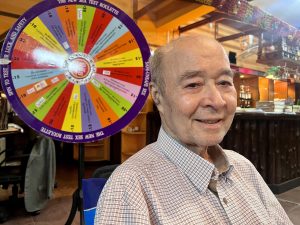Mechai Viravaidya has spent the last 50 years at the helm of family planning in Thailand, and has been credited with saving countless lives through his safe sex campaigns, which rose to the fore when the HIV/AIDS virus took hold in 1981.
From his flagship restaurant Cabbages and Condoms in Bangkok, Mechai spoke with The Diplomat’s Luke Hunt about fulfilling his social obligations, inherited from his Thai father and Scottish mother, both medical doctors, who emphasized the importance of giving back.
Born in 1941, he studied at the University of Melbourne and returned to Thailand where he became a government minister, traveled the country, and realized the potential devastating impact of a sharply rising birth rate and the difficulties faced by his nation’s mothers.
He was also confronted by political leaders who believed Thailand could become a global superpower if it had a large enough population and they were just not interested in reducing the country’s population rate.
Mechai persisted and established the non-profit Population and Community Development Association which was largely funded through Cabbages and Condoms. The average number of children in Thai families fell from seven to 1.5.
In Thailand, Mechai has affectionately been known as “Mr. Condom” and condoms are often referred to as “mechais” – nicknames he wears with a sense of humor while noting condoms are no more offensive than an orange or a tennis ball.
These days Mechai is focused on his rural Bamboo Schools program and on elderly Thais, who lack family support, through his country’s extensive network of 40,000 temples where housing has been built on vacant land, health care is provided and food grown and distributed.

































